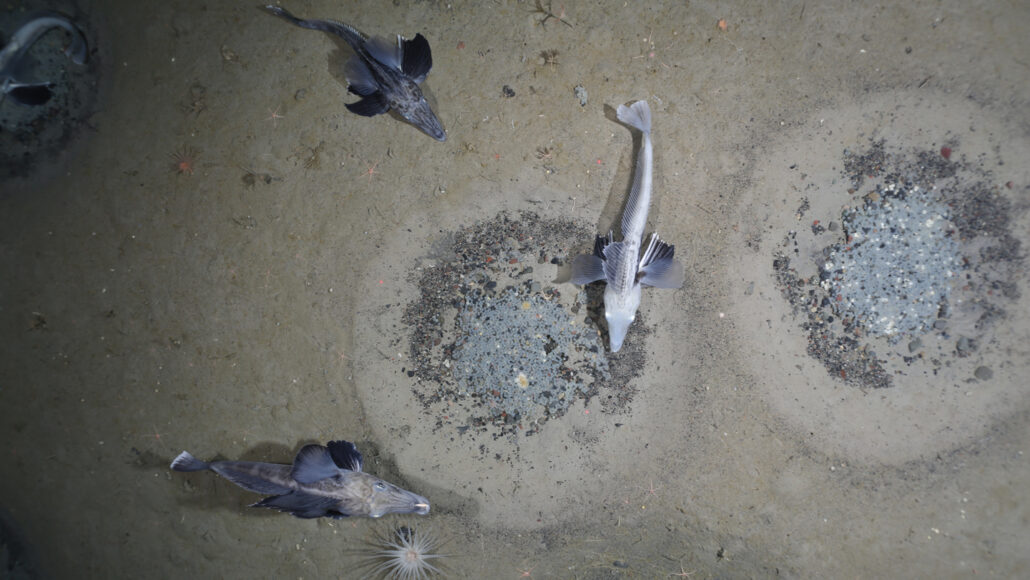Questions for ‘World’s biggest colony of nesting fish lives beneath Antarctic ice’

Jonah’s icefish (Neopagetopsis ionah) create circular nests with hard rock centers, where the fish can lay more than 1,700 eggs.
Alfred Wegener Institute, PS124 OFOBS team